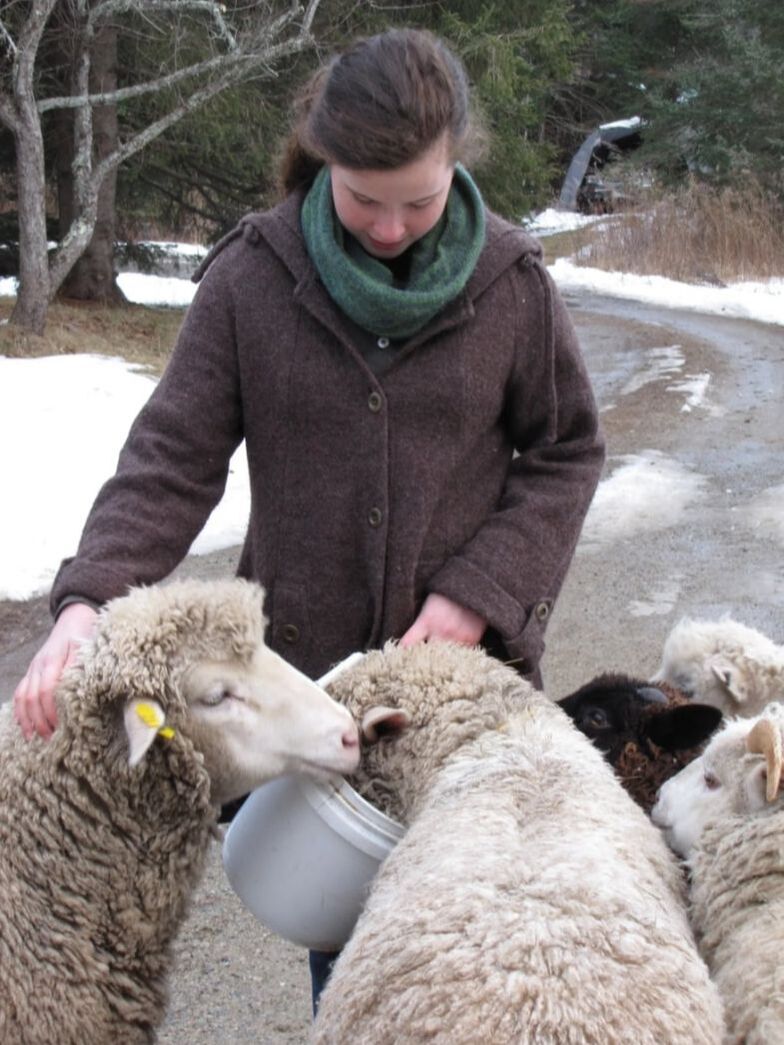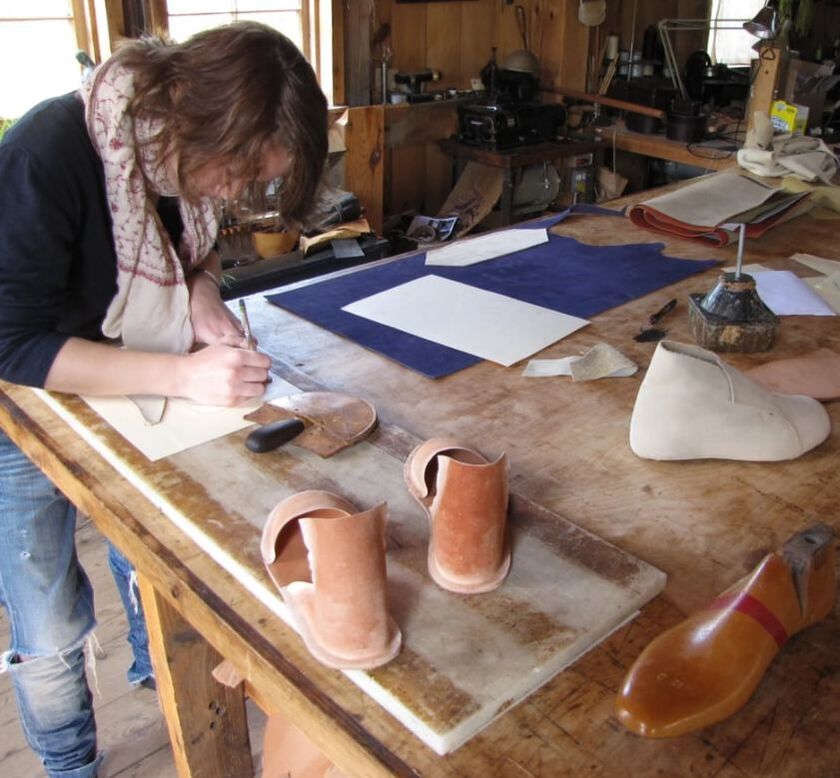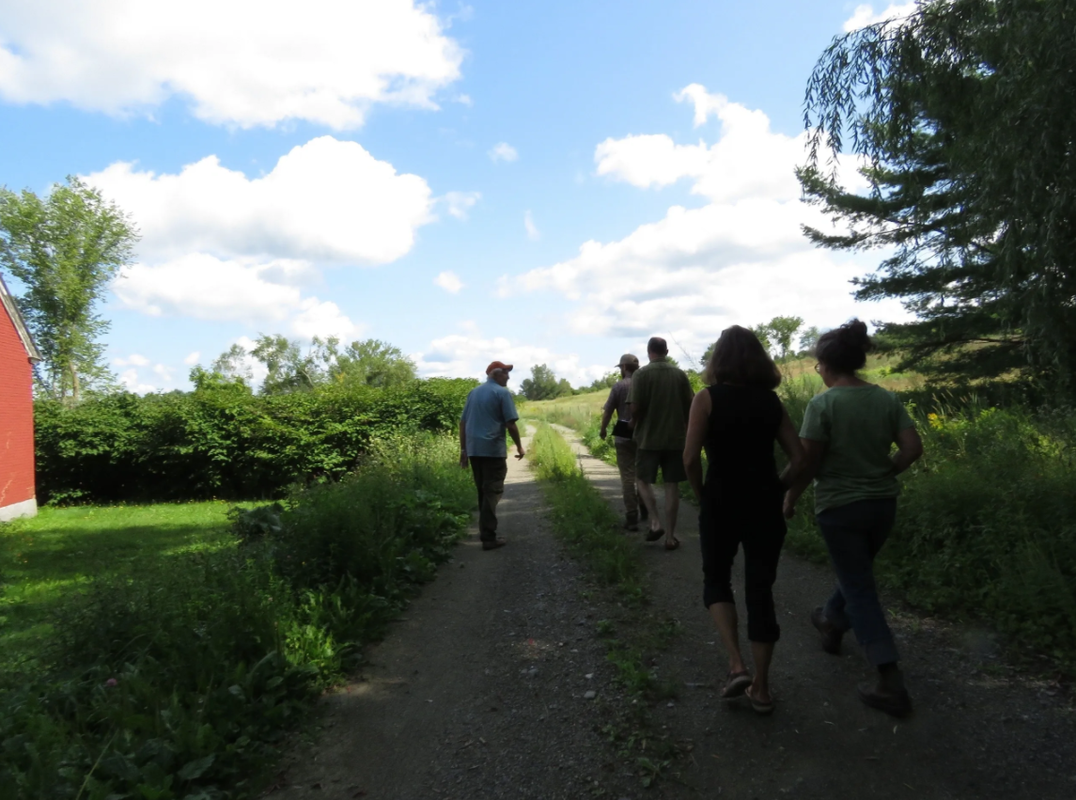PROGRAMS
|
Small Groups, Hands-on-Learning
8–10 co-ed participants in each session live on the farm for two weeks. In the near future we look forward to breaking ground on a Community Hall building to include a commercial kitchen and expandable dining area, as well as studio and sleeping spaces). Each morning after breakfast, participants will be immersed in innovative land-based work around the farm or in the forest, followed by a shared lunch. Afternoons see the studio spaces active, engaging participants in the work of one or two of our guest craftmasters over the two week session. The focus is always on developing the individuality of each participant in the context of the community.
|
Time to Reflect
Each day, time is spent on keeping a journal, as well as quiet (guided) meditation. This takes the form of introductions to yoga, Tai Chi, or TM, (as available).
Built into the sessions there are multiple opportunities for conversation and check-ins with mentors on an individual basis, as well as informal social times around meals and festivals. Establishing a strong group-conscious rhythm allows for the daily weaving of a variety of tasks, quiet time, intriguing learning, and community-making. |
Break Bread Together
Meals are created together in our kitchen. Participants will be able to experience meal planning and cooking with produce they have grown or gathered themselves. Together we come to understand why good nutrition is important to our physical and mental health. Breaking (home-made) bread together with resident farmers, gardeners and foresters, visiting craftmasters, and farm apprentices, we experience the value of shared meal-times, and our are souls nourished too.
|
|
Show Your Work
There is a Show Space for studio work to be displayed and recorded. This may include metalwork, woodwork, pottery or fiber work, and is open to invited family and guests. Eventually we hope our programs will earn participants credits towards high-school diploma.
For now, the Show Space takes place inside the work spaces. Eventually Bowsprit will build a Community Hall incorporating a commercial kitchen, dining area for participants, lecture room, studio spaces, and simple accommodations. Between programs the center will be open to the local community for a variety of uses. |
Keep It Local
Efforts towards mentoring, and outreach into the broader community are seen as integral parts of what our programs aim to achieve. Connections with other organizations, and in particular with local farms and independent businesses, open other opportunities for continued engagement and skills development. Sometimes our mentors will be drawn from other states in New England; occasionally from further afield; but our goal is to keep it as local as possible.
|
Low Tech
Leave your phones at home, they won't be needed here. When requested, phone contact between family members is readily facilitated. Our courses are intensive, focused, and relatively brief - we'll be learning from direct experience, and special bonds are made in this undiluted context, and without outside distractions.
|
FARMING
|
Farm Overview - (an aspiration in the making)
The biodynamic farm provides a natural foundation for learning, each morning we work at critical on-farm tasks, from vegetable cultivation, greenhouse work, tending livestock, working with draft animals, harvesting, forestry work, making cheese and other value-added products in the commercial kitchen, and making meals for each other on a rotational basis from food grown on the farm.
Spring
Get involved in seeding trays in the propagation greenhouse and harvesting early spring greens in the season extension high tunnels. As the ground thaws, we'll be preparing fields for the coming season. In the barns there is always work to be done. Whether working with the cow herd, the goats, sheep, and horses, the jobs are necessary to keeping our animals healthy, and our food sources sound. Spring finds our animals moving onto pasture from their winter inside - a time of celebration.
|
Summer
Transplant crops from trays to the field, mirroring our shift in attention from protected spaces to the abundant vitality of living soils. While moving different groups of animals through our pasture rotation, watch how the cows greet new paddocks by tasting the soil, pay attention to where the sheep settle in to graze, suggesting differences in soil and pasturage. Learn about benefits and drawbacks to working with tractors or draft animals. Harvest vegetables, help to make yogurt, pack goat cheese for market.
Fall
Bring in the last field produce of the season, collecting winter squash and digging carrots, pulling orange from dark soil. We'll set them up in our dry room or in the root cellar, planning future meals and well-deserved respite from cold winter weather. Prepare winter greens with row cover and moveable field hoophouses. Get garlic in the ground for next season.
Winter
Dress warmly. See what it takes to raise winter hardy greens in the greenhouse and high tunnels. Learn about the challenges, and the joys, of harvesting timber from our forest using tractor and horse power. Join our orchard work as we make our way around the farm, pruning the fruit trees, learning about tree health and what makes trees more like soil than you might think. Oh, and before supper, let's just try that sled run one more time.
HAND-SKILLS
|
Afternoon Activities in the Workshops
Afternoons are spent in workshops learning a craft, from the tools and techniques, to uses and history. Our craft-masters have specialties in pottery, weaving, woodworking, and metal work – using raw materials from the farm whenever possible and relevant. Learning how to hone, repair, and maintain tools and machinery is a valued skill at Bowsprit.
Whenever possible, we encourage and facilitate the practice of collaborating with local educational organizations such as Unity College, MOFGA, Waldo Co Technical College, The Ecology Learning Center, as well as local independent businesses who may be interested in developing apprenticeship-type connections with some of our participants. |
RECREATION
|
Down-Time.
Weekends might be spent hiking, swimming, sledding or skiing, dancing or singing, and preparing for festive meals at the farm or nearby places of interest. Those who wish to work on their studio projects may do so with supervision. Bowsprit is bordered by over a mile of frontage along dynamic Sandy Stream; and seasonal Mussey Brook also runs through the property. The public already enjoys significant access across the farm and through it's woods via the Hills-to-Sea Trail (Waldo Co Trails Coalition) and the Snow Dusters snowmobile trail. There are plans to develop the network of trails to increase access to further areas of the woods.
An exhibition on the last day of each 2-week session is an opportunity for participants to showcase their work for family and friends - among other things, this provides for healthy social interface and relationship building. Learning happens easily when we spend time together in less-structured, recreational activities.
|



